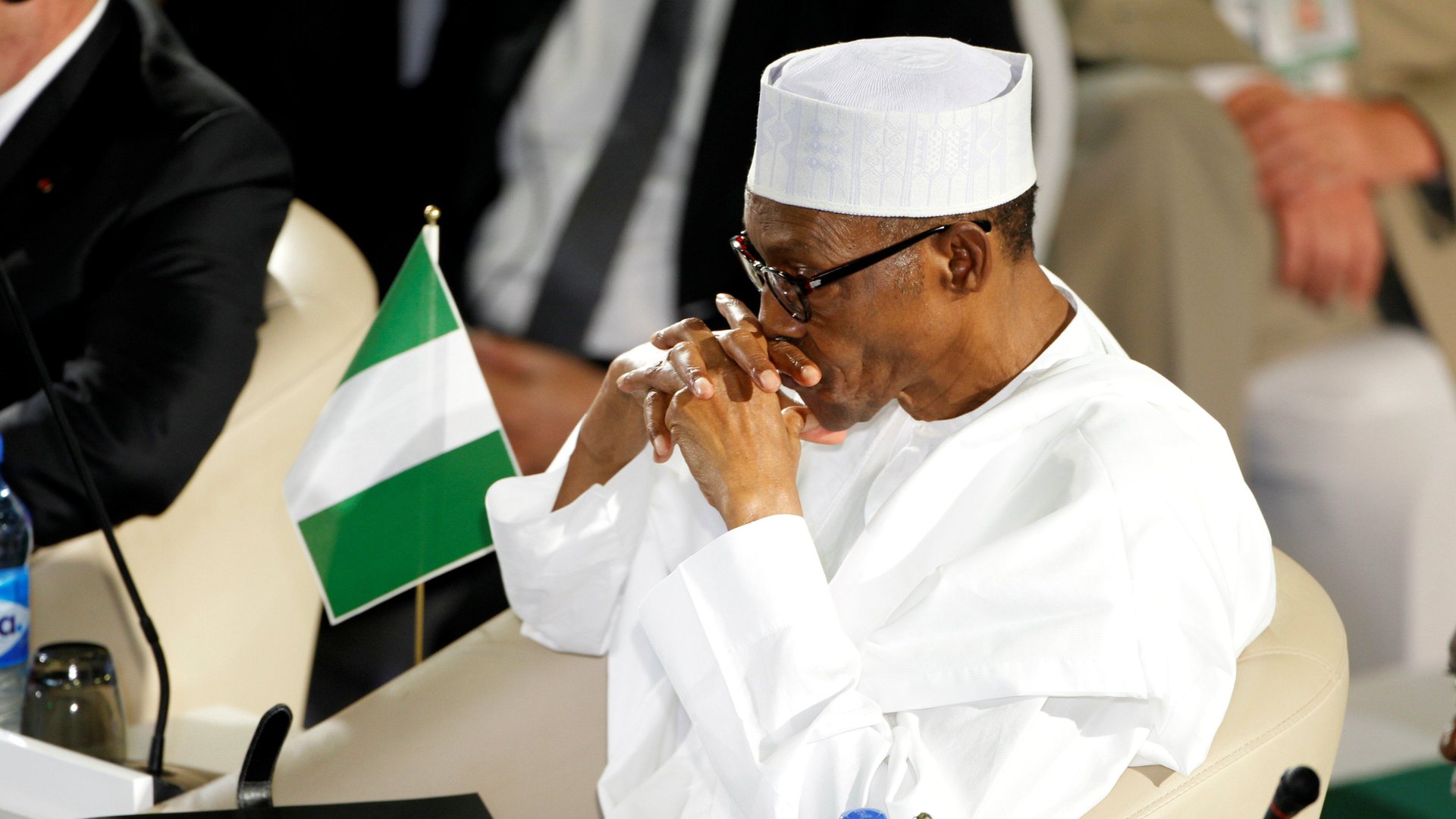Nigerians think a new government PR campaign blames them for the country’s woes
Nigeria’s president Muhammadu Buhari has launched a new national reorientation campaign pushing Nigerians to aspire to better social values and ideals, given the country’s infamy for corruption. Tagged #ChangeBeginsWithMe, the campaign is a play on Buhari’s promise to deliver ‘change’ to Nigerians during election campaigns.


Nigeria’s president Muhammadu Buhari has launched a new national reorientation campaign pushing Nigerians to aspire to better social values and ideals, given the country’s infamy for corruption. Tagged #ChangeBeginsWithMe, the campaign is a play on Buhari’s promise to deliver ‘change’ to Nigerians during election campaigns.
“Our citizens must realize that the change they want to see begins with them, and that personal and social reforms are not a theoretic exercise,” Buhari said at the launch event. “In other words, before you ask ‘where is the change they promised us?’, you must first ask, ‘how far have I changed my ways?”
But despite its obvious good intentions, the president’s words have fallen flat with Nigerians. At a time when the economy is reeling, having slipped into a recession for the first time in decades, Nigerians, feeling the brunt of the difficult times, are increasingly looking to Buhari for answers. Some Nigerians, especially the middle classes on social media, feel the president’s campaign not only pins the blames for the country’s woes on them but is also a betrayal of Buhari’s campaign promise to deliver change.
Much of the prevailing sentiment is down to Buhari’s perceived poor start in office. It took six months to appoint ministers and questionable economic policies were put in place and maintained despite obvious drawbacks. Perhaps most crucially, while many hoped that, under Buhari, government officials will lead more austere lifestyles, that has not been the case. The annual budgetary allocation of $365 million for Nigerian lawmakers remains as opaque as ever without any accountability for how it is spent.
Also, given concerns in some quarters about Buhari’s past as a military dictator in the 1980s, the #ChangeBeginsWithMe campaign evokes unpleasant memories of ‘War Against Indiscipline’, a policy introduced by Buhari in 1984 which sought to “instill public morality” and demand patriotism. Government workers were punished by soldiers for reporting to work late, as regular Nigerians were punished for being disorderly in public.
In general, the response to the president’s campaign is the latest evidence that much of his first-year goodwill has dissipated as he has struggled to deliver meaningful progress. Peter Adeshina, a recent university graduate, shares this view. “The campaign, by itself, is not a bad idea,” he says. “But this government doesn’t have the moral right to ask Nigerians to do anything because they have not kept their end of the bargain.”